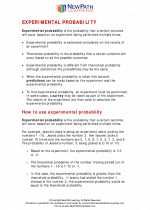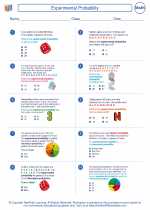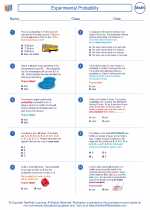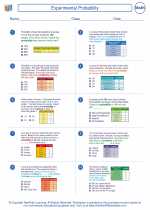Arithmetic Sequences
An arithmetic sequence is a sequence of numbers in which the difference between any two consecutive terms is constant. This constant difference is called the common difference, denoted by d.
The general form of an arithmetic sequence is:
an = a1 + (n-1)d
Where:
an = the nth term of the sequence
a1 = the first term of the sequence
n = the position of the term
d = the common difference
Finding the nth Term of an Arithmetic Sequence
To find the nth term of an arithmetic sequence, you can use the formula:
an = a1 + (n-1)d
Finding the Common Difference
If you are given the first term (a1) and the nth term (an) of an arithmetic sequence, you can find the common difference (d) using the formula:
d = (an - a1) / (n-1)
Sum of an Arithmetic Sequence
The sum of the first n terms of an arithmetic sequence, denoted by Sn, can be found using the formula:
Sn = (n/2)(a1 + an)
Study Guide
- Understand the concept of an arithmetic sequence and the common difference.
- Be able to find the nth term of an arithmetic sequence using the given formula.
- Learn to find the common difference when given the first term and the nth term of an arithmetic sequence.
- Practice calculating the sum of the first n terms of an arithmetic sequence.
- Work on solving word problems involving arithmetic sequences to apply the concepts.
Remember to practice solving different types of problems to strengthen your understanding of arithmetic sequences.
Good luck with your studies!
.◂Math Worksheets and Study Guides Eighth Grade. Experimental Probability

 Worksheet/Answer key
Worksheet/Answer key
 Worksheet/Answer key
Worksheet/Answer key
 Worksheet/Answer key
Worksheet/Answer key
